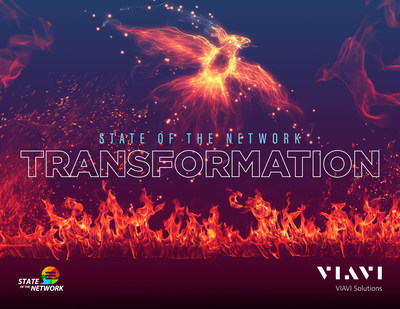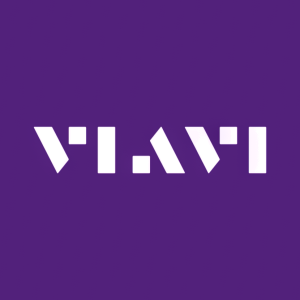IT Moves Past the Pandemic: Organizations Balance New Technology Deployment, Cyberattack Response, and Skills Gaps
VIAVI Solutions released its 14th annual State of the Network global study, highlighting how organizations are adapting to post-pandemic challenges. Key findings reveal 60% of respondents plan to increase spending on technologies like SD-WAN and private 5G. IT teams report over 10 hours weekly managing collaboration tools due to a skills gap, with 90% of mid-size firms struggling to attract talent. Additionally, 87% of network operations teams now focus on security threat detection, influenced by recent cyberattacks like SUNBURST. The full study compiled insights from 794 industry professionals.
- 60% of respondents expect to increase spending in 2021 on new technologies.
- 90% plan to deploy 100 Gigabit Ethernet within three years.
- 87% of NetOps teams involved in security threat detection, up by 25%.
- Skills gap hinders troubleshooting efforts, particularly in mid-size firms.
- Over 51% of organizations impacted by the SUNBURST cyberattack.
SCOTTSDALE, Ariz., April 6, 2021 /PRNewswire/ -- VIAVI Solutions Inc. (VIAVI) (NASDAQ: VIAV) today released the results of its 14th annual State of the Network global study of enterprise networking and security challenges. As the Covid-19 pandemic forces a global reset of how we gather and work, the survey provides key insights into how organizations are adapting. Sixty percent of respondents are looking forward to increased spending in 2021 to deploy new technologies, including SD-WAN (62 percent), private 5G (52 percent) and AI operations (45 percent) – while supporting a surge in use of unified communications (UC) and collaboration tools, spending more time in security threat detection and remediation, and reckoning with a skills gap.
Despite the disruptive challenges of 2020, the survey reveals that IT teams have adapted to managing end-user experience in today's work-from-home paradigm. Survey respondents now report spending at least 10 hours per week addressing issues related to UC and collaboration tools such as WebEx, Microsoft Teams and Zoom. The importance of network and application access has never been more critical, particularly as some organizations look to extend remote work indefinitely.
The challenge of troubleshooting UC and other applications also was compounded by a growing skills gap. In fact, respondents' top application troubleshooting challenge was the lack of requisite talent to solve performance issues. This gap was most acute among organizations with less than
"The past year has been transformative for enterprises, as IT teams adapted to the task of maintaining smooth service delivery and optimal end-user experience in spite of pandemic-related disruptions," said Charles Thompson, Vice President and General Manager, Enterprise and Cloud, VIAVI. "The challenges have not gone away, however, as this year's State of the Network study demonstrates. A widening skills gap is creating a troubleshooting hurdle more difficult than any technical issue, even as NetOps teams are spending more time than ever dealing with heightened security concerns."
"Our research has shown that the skills gap is real, whether network teams are working with legacy technology or next-generation solutions," said Shamus McGillicuddy, Vice President of Research, Network Management, Enterprise Management Associates. "There are ways to mitigate the gap. IT organizations can adopt network management tools with role-based workflows that are aimed at empowering lower-level admins to take on tasks usually reserved for power users. Another option is to embrace network automation tools that can either shorten workflows for skilled engineers, or allow them to delegate more tasks to admins."
Additional Survey Findings
- Organizations have embraced the cloud when it comes to hosting critical applications, citing "improved service availability and reliability" as the top reason for migration.
- IT teams remain committed to deploying high-speed networks. More than 90 percent will deploy 100 Gigabit Ethernet (100GbE) during the next three years, while 80 percent are planning to deploy 400GbE.
- Eighty-seven percent of network operations (NetOps) teams are now involved in security threat detection and remediation – an increase of more than 25 percent from last year.
- Fifty-one percent reported that their organizations were affected by the massive SUNBURST cyberattack.
Key Takeaways for IT Teams
- Finding and retaining qualified talent is hindering efforts to troubleshoot applications. Roughly half of respondents noted that network automation helps to free up IT staff to focus on strategic initiatives and drive business innovation. For example, automated network monitoring can help alleviate the shortage of trained technicians.
- Executives should be aware that pooling NetOps, SecOps and DevOps into conventional IT war rooms impacts the ability to meet deadlines for key projects. While war rooms may be inevitable to solve severe performance and security escalations, their frequency can be reduced with tools and workflows that facilitate collaboration across silos via shared data sources.
- It may be futile to try to entirely outrun a massive global incident such as SUNBURST. IT teams can prepare for future attacks with network monitoring tools that capture full-fidelity, court-admissible forensic data. This speeds threat detection and remediation, helping to limit stolen data, reduce legal costs and regulatory fines, and keep reputational damage to a minimum.
State of the Network Global Study Methodology
VIAVI (and previously Network Instruments) has conducted its State of the Network global study for 14 consecutive years, drawing insight about network trends and painting a picture of the challenges faced by IT teams. Results were compiled from 794 respondents, including network engineers, IT directors, security engineers and CIOs worldwide. In addition to geographic diversity, the study population was distributed among networks and business verticals of different sizes. Study questions were designed based on a survey of network and security professionals. The full study is available here: www.stateofthenetwork.com.
About VIAVI
VIAVI (NASDAQ: VIAV) is a global provider of network test, monitoring and assurance solutions for communications service providers, enterprises, network equipment manufacturers, government and avionics. We help these customers harness the power of instruments, automation, intelligence and virtualization to Command the network. VIAVI is also a leader in light management solutions for 3D sensing, anti-counterfeiting, consumer electronics, industrial, automotive, and defense applications. Learn more about VIAVI at www.viavisolutions.com. Follow us on VIAVI Perspectives, LinkedIn, Twitter, YouTube and Facebook.
Media Inquiries: | ||
North America Sonus PR Micah Warren | Latin America Edelman Significa Monica Czeszak | DACH Riba:BusinessTalk Michael Beyrau
|
EMEA & Asia Pacific/Japan Sonus PR Chevaan Seresinhe | India Voila Communications Manish Sharma | China Archetype Geff Pan |
![]() View original content to download multimedia:http://www.prnewswire.com/news-releases/it-moves-past-the-pandemic-organizations-balance-new-technology-deployment-cyberattack-response-and-skills-gaps-301262713.html
View original content to download multimedia:http://www.prnewswire.com/news-releases/it-moves-past-the-pandemic-organizations-balance-new-technology-deployment-cyberattack-response-and-skills-gaps-301262713.html
SOURCE VIAVI Solutions
FAQ
What does the 2021 State of the Network study by VIAVI reveal?
How many hours are IT teams spending on collaboration tools management?
What percentage of NetOps teams are focused on security threat detection?









